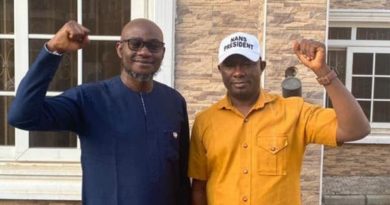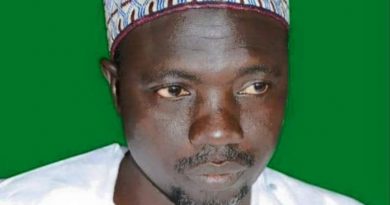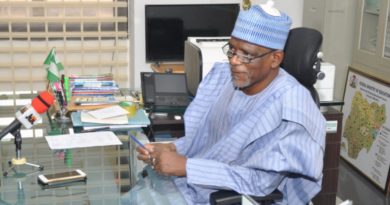Why Nigeria Must Boost investment in education
The Vice President, Prof. Yemi Osinbajo, and former Anambra State governor, Peter Obi, recently made case for more investment in education. They also linked the development of the country to the volume of investment in the sector.
The duo spoke at the TECHISD 2020 Online International Conference organized by the Centre of Lion Gadgets and Technologies in partnership with the Department of Electronic Engineering, University of Nigeria, Nsukka (UNN).
They called for increased funding of the sector and the introduction of specialized technological educational training that will enable Nigerian students and youths to fit into the emerging world and also compete favorably with their counterparts in areas of science and technology.
ALSO READ: Improving university education in Nigeria
The world, they observed, is fast changing technologically, hence anyone who does not catch up with the new wave of technology would be left behind.
The Vice President and Obi spoke the minds of many Nigerians on the issue. Education has a direct bearing on the level of development of any nation. As a catalyst to development and participatory governance, education is invariably the key to unlock the mind and a step in banishing poverty.
Human capital development through quality education remains the easiest way of fostering development in a country. The maxim, knowledge is power, remains instructive.
To exit our current level of underdevelopment, Nigeria needs to redouble its investment in education. The present level of investment in the sector is abysmal and not encouraging. It is sad that the nation’s education sector, all levels inclusive, is in a sorry state.
Unfortunately, the budgetary allocation to the sector is paltry. Of the N10.33 trillion budgeted for the 2020 national budget, only N691.07 billion or 6.7 percent was allocated to education. Of this amount, N48 billion was for capital expenditure.
The education sector takes care of 28 parastatals, 37 federal universities, 25 federal polytechnics, 21 federal colleges of education, and 104 unity schools.
It must be pointed out that the budgetary allocation to education is far below the United Nations Educational and Scientific Organisation (UNESCO) recommendation that 26 percent of the national budget of member states be set aside for education annually.
Even by African standards, Nigeria’s investment in education is very low when compared with other African countries such as South Africa and Egypt. Available statistics on investment in education on the continent reveal that between 2010 and 2016, South Africa invested over five percent of its Gross Domestic Product (GDP); Egypt more than 3.5 percent of its GDP, while Nigeria invested barely one percent of its GDP in the sector.
From 2010 to 2014, Nigeria budgeted N1.860 trillion for the sector or US$11.1 billion at the exchange rate of N160 to the dollar. In 2015 and 2016, the combined budgetary allocation was N761 billion or US$2.1 billion at the rate of N360 to a dollar.
Thus, in a period of seven years, 2010-2016, Nigeria, then with a population of about 190 million people, invested US$13.2 billion in education while South Africa, the second-biggest economy in Africa, with a population of 55 million, invested over US$15 billion in the sector in 2015 alone and Egypt, the third biggest economy in Africa with a population of 95 million people spend about US$12 billion in that same year only on education.
The nation’s poor investment in education has led to inadequate infrastructure in the sector as well as the perceived fall in the standard of education. The culture of neglect manifests in inadequate and obsolete teaching and research facilities, unexciting learning environment, poor remuneration of workers, and recurring instability in the system.
Due to an unpredictable academic calendar, more Nigerians are literally forced to seek admission in foreign universities in Europe and America. Some even go for universities in neighbouring West African countries such as Ghana, Togo, and the Benin Republic at exorbitant costs. The current education tourism is avoidable.
The poor funding of the nation’s universities also affects their global rankings. In the past, Nigerian universities and other institutions of higher learning attracted foreign academics and students. But now, the reverse is the case.
We call on the government to prioritise the education sector and fund it adequately. Countries that rank high in sustainable development had made serious investments in education. The observation by Osinbajo and Obi should serve as a wake-up call on the federal and state governments to pay more attention to the education sector.
However, the task of revamping the sector cannot be entirely left for the government. Prominent individuals and organizations are enjoined to invest in the sector to complement the efforts of the government.
In this regard, we commend the like of Chief Afe Babalola, SAN, who founded Afe Babalola University, Ado-Ekiti, Ekiti State; Chief Gregory Ibeh, founder of Gregory University, Uturu, Abia State; Dr. Peter Odili, founder of PAMO University of Medical Sciences in Port Harcourt and Christian organizations that founded universities in the country.
Credit: Sun News Editorial
For Advert Placement, Sponsorship, support, Article submission, suggestion, etc, Contact us: info@theabusites.com, +2349015751816 (WhatsApp)








